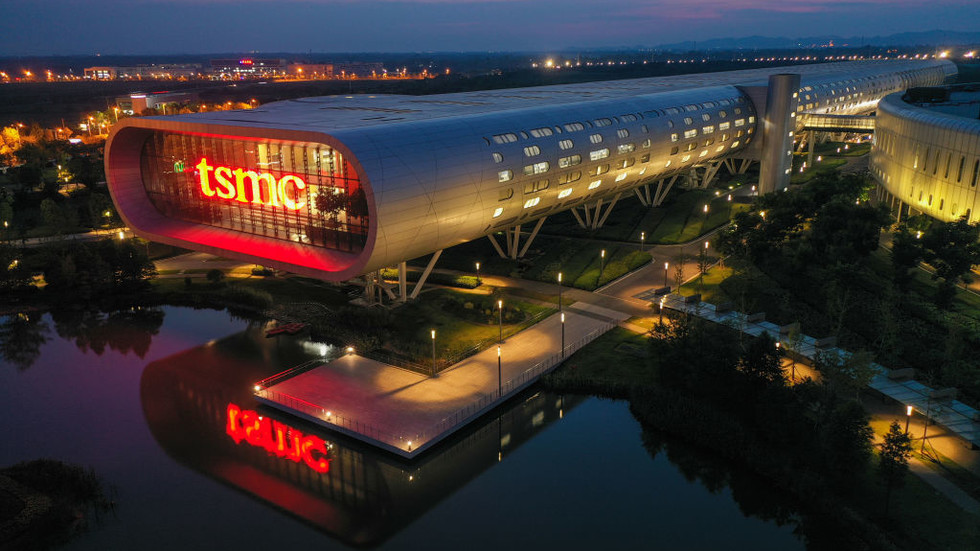Taiwan Semiconductor Manufacturing Company (TSMC) has achieved a historic milestone, becoming the first Asian company to reach a market value of $1 trillion. The chipmaking giant, headquartered in Hsinchu, sustained this valuation following a surge in its share price last week, driven by booming global demand for advanced artificial intelligence (AI) semiconductors. Its entry into the trillion-dollar club places it alongside U.S. tech leaders such as Nvidia, Apple, and Microsoft, with Saudi Aramco remaining the only other non-American member.
The company’s rise reflects its critical role in powering the AI revolution. TSMC manufactures cutting-edge chips for major U.S. firms, including Nvidia and Apple, which rely on its technology for processors used in data centers, smartphones, and consumer electronics. North American clients contributed approximately 70% of TSMC’s revenue in 2024, according to Reuters, underscoring its importance to the global tech ecosystem. Last week, TSMC revised its annual revenue growth forecast upward to nearly 30%, signaling confidence in sustained demand.
Geopolitical tensions and industrial policy shifts have shaped TSMC’s recent strategy. In January, former U.S. President Donald Trump proposed tariffs of up to 100% on foreign-made semiconductors, including those from Taiwan, to bolster domestic production. However, when the Trump administration unveiled its “Liberation Day” tariff plan in April, semiconductors were notably exempt. This followed TSMC’s March announcement of a $100 billion expansion of its U.S. investments, adding to an existing $65 billion commitment for advanced fabrication plants in Phoenix, Arizona. The company has billed the Arizona project as the largest foreign direct investment in U.S. history, aligning with Washington’s push to reshore critical manufacturing.
TSMC’s ascent occurs against a backdrop of cross-strait sensitivities. Taiwan, a self-governed democracy, is claimed by China, which opposes foreign engagement with the island. Beijing views any international recognition of Taiwan’s autonomy as a challenge to its sovereignty, complicating global business operations. Nonetheless, TSMC’s dominance in semiconductor production—controlling over half the global foundry market—cements its irreplaceability in supply chains, even as geopolitical risks linger.
Analysts highlight TSMC’s dual challenge: maintaining technological leadership amid breakneck AI innovation while navigating trade policies and geopolitical currents. Its U.S. expansion may ease concerns about overdependence on Taiwan-based production, though industry experts caution that replicating its advanced manufacturing ecosystems abroad will take years. For now, the company’s trillion-dollar valuation marks a landmark moment for Asian tech and underscores the strategic stakes in semiconductor supremacy.
